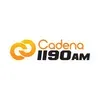Cadena Live Radio Stations
Radio Stations
Choose a Genre
"Cadena" is a Spanish term that translates to "chain" or "network." In the context of radio stations, it refers to a network of stations that share programming and resources, often owned by a single company or organization.
Stations that are part of a "cadena" tend to have a standardized format and programming, often focusing on a specific genre or target audience. For example, there are "cadena" networks that specialize in news and talk programming, while others focus on music or sports.
The benefits of being part of a "cadena" network include access to a larger audience and shared resources, such as advertising and marketing campaigns, which can help increase revenue and brand recognition. Additionally, stations within a "cadena" network can share programming and resources, such as news and sports coverage, which allows for more efficient and cost-effective operations.
However, being part of a "cadena" network can also come with some drawbacks. Stations within the network may have less autonomy over their programming and operations, as they must adhere to the standardized format and guidelines set by the network. Additionally, stations within the network may be forced to carry programming or advertising that they do not agree with or that does not resonate with their local audience.
Overall, the concept of "cadena" in radio stations reflects the importance of collaboration and shared resources in the broadcasting industry. While there are benefits and drawbacks to being part of a network, the ultimate goal is to provide quality programming and services to listeners, while also ensuring financial stability and success for the stations within the network.
Stations that are part of a "cadena" tend to have a standardized format and programming, often focusing on a specific genre or target audience. For example, there are "cadena" networks that specialize in news and talk programming, while others focus on music or sports.
The benefits of being part of a "cadena" network include access to a larger audience and shared resources, such as advertising and marketing campaigns, which can help increase revenue and brand recognition. Additionally, stations within a "cadena" network can share programming and resources, such as news and sports coverage, which allows for more efficient and cost-effective operations.
However, being part of a "cadena" network can also come with some drawbacks. Stations within the network may have less autonomy over their programming and operations, as they must adhere to the standardized format and guidelines set by the network. Additionally, stations within the network may be forced to carry programming or advertising that they do not agree with or that does not resonate with their local audience.
Overall, the concept of "cadena" in radio stations reflects the importance of collaboration and shared resources in the broadcasting industry. While there are benefits and drawbacks to being part of a network, the ultimate goal is to provide quality programming and services to listeners, while also ensuring financial stability and success for the stations within the network.




